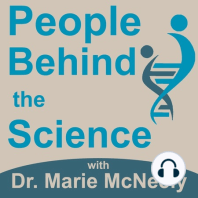35 min listen

190: Steering Our Attention Towards Issues in Distracted Driving - Dr. David Strayer
190: Steering Our Attention Towards Issues in Distracted Driving - Dr. David Strayer
ratings:
Length:
45 minutes
Released:
Dec 8, 2014
Format:
Podcast episode
Description
Dr. David Strayer is a Professor in the Department of Psychology at the University of Utah and Director for the Center for the Prevention of Distracted Driving. He received his Masters degree in Experimental Psychology from Eastern Washington University and his PhD in Experimental Psychology from the University of Illinois at Urbana-Champaign. Afterward, he completed a postdoctoral fellowship at the University of Illinois at Urbana-Champaign and worked briefly as a Member of Technical Staff at GTE Laboratories before joining the faculty at the University of Utah. David has received many awards and honors during his career, including being named a Fellow of the Association for Psychological Sciences, receiving the Interdiscipliniary Teaching Grand Award from the Psychology of Traffic, and being awarded the University of Utah Distinguished Scolarly and Creative Research Award. David's research has also been featured among Discover Magazine's 100 Top Science Stories in 2003 and 2005. He has also giving briefings to the US House and Senate on distracted driving issues. David is here with us today to tell us all about his journey through life and science.
Released:
Dec 8, 2014
Format:
Podcast episode
Titles in the series (100)
007: Rocking and Rolling with Ground and Dung Beetles - Dr. Jeff Bradshaw: Dr. Jeff Bradshaw is a Research and Extension Entomologist in the Department of Entomology at the University of Nebraska-Lincoln.He received his Masters in Zoology at Southern Illinois University and PhD in Entomology and Plant Pathology at Iowa State... by People Behind the Science Podcast Stories from Scientists about Science, Life, Research, and Science Careers